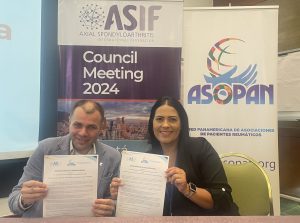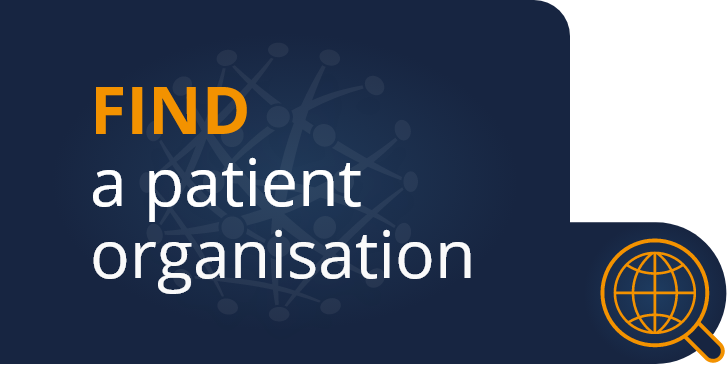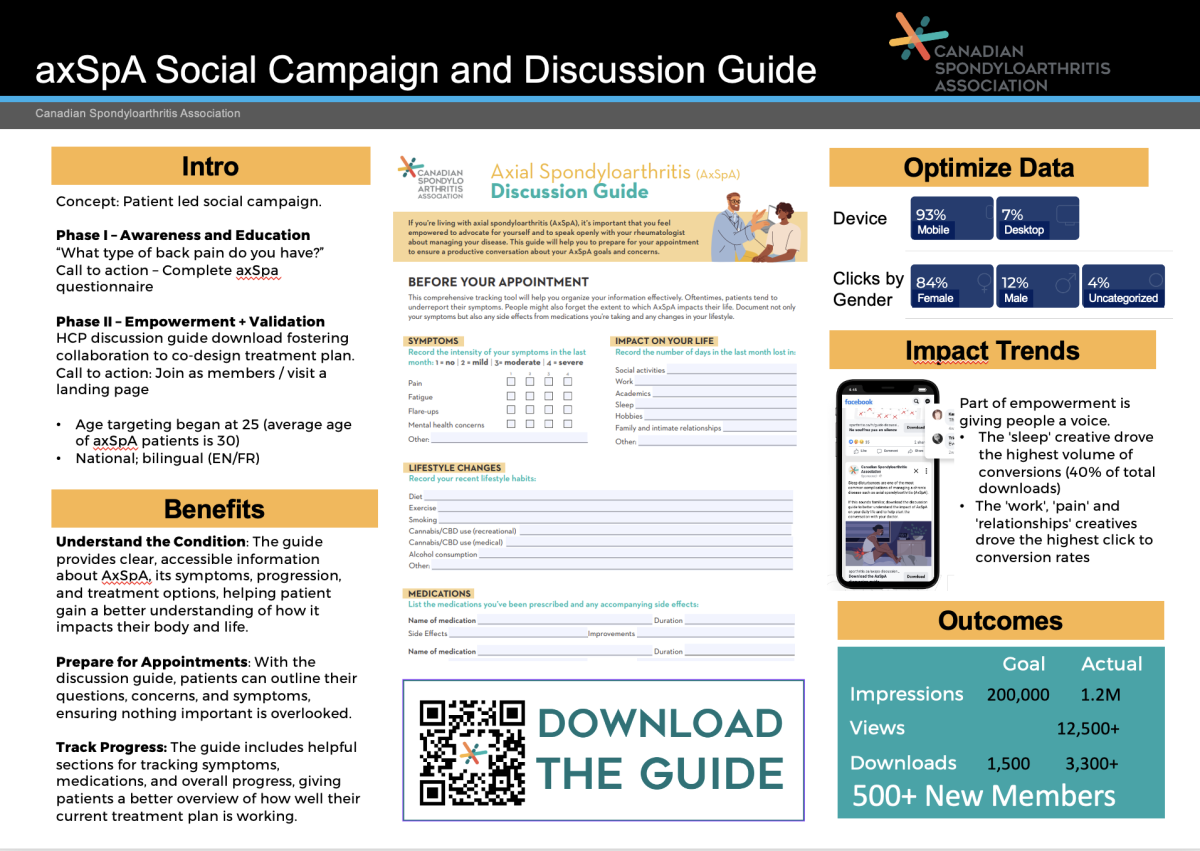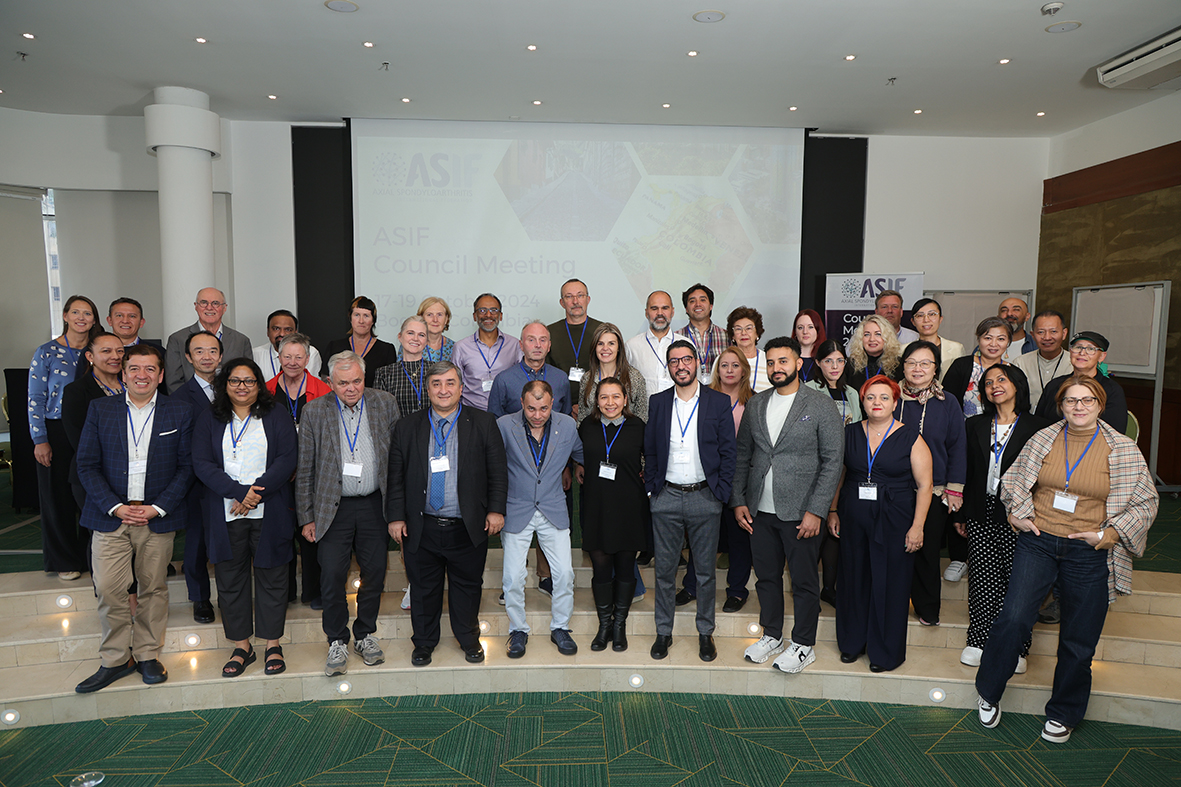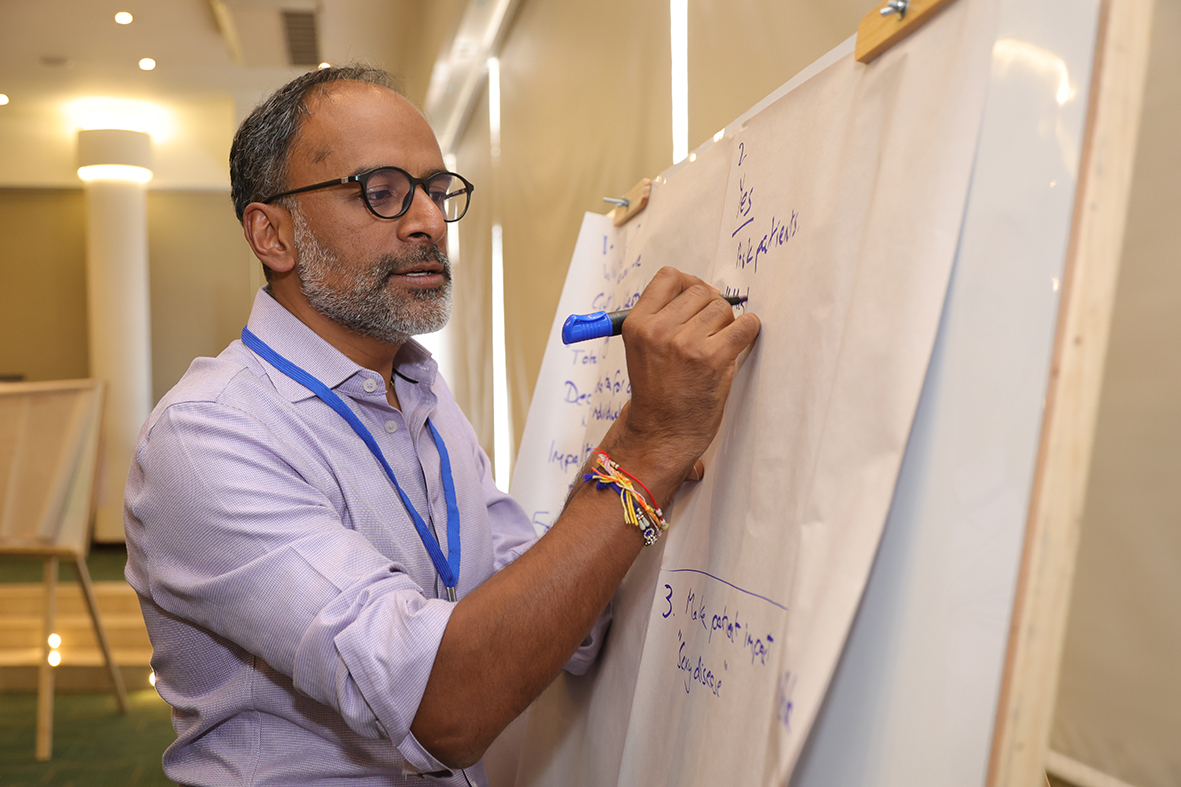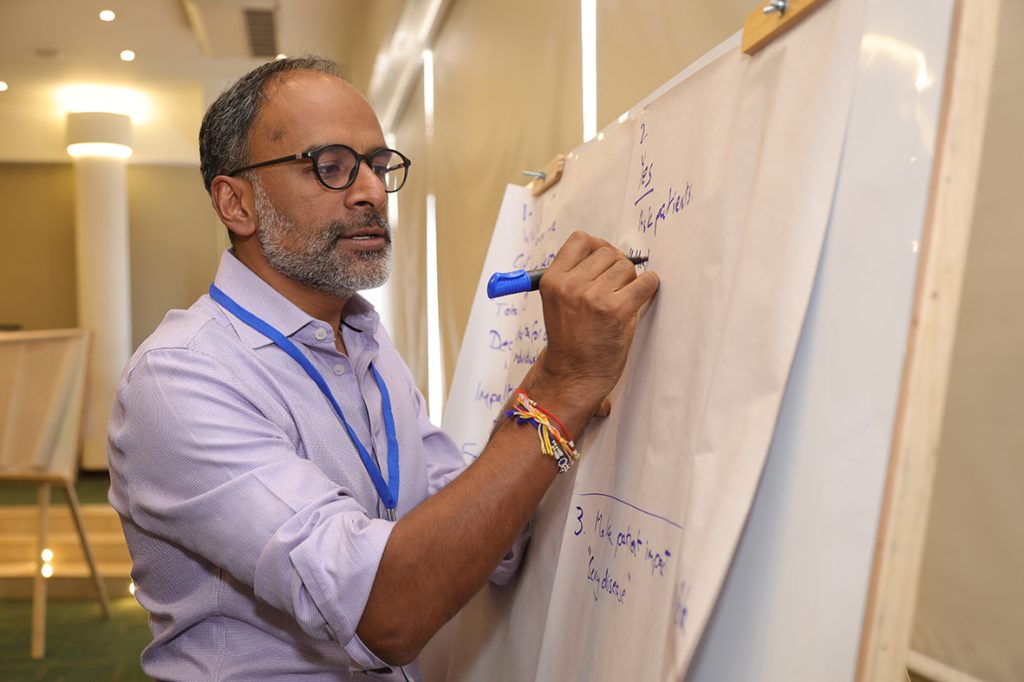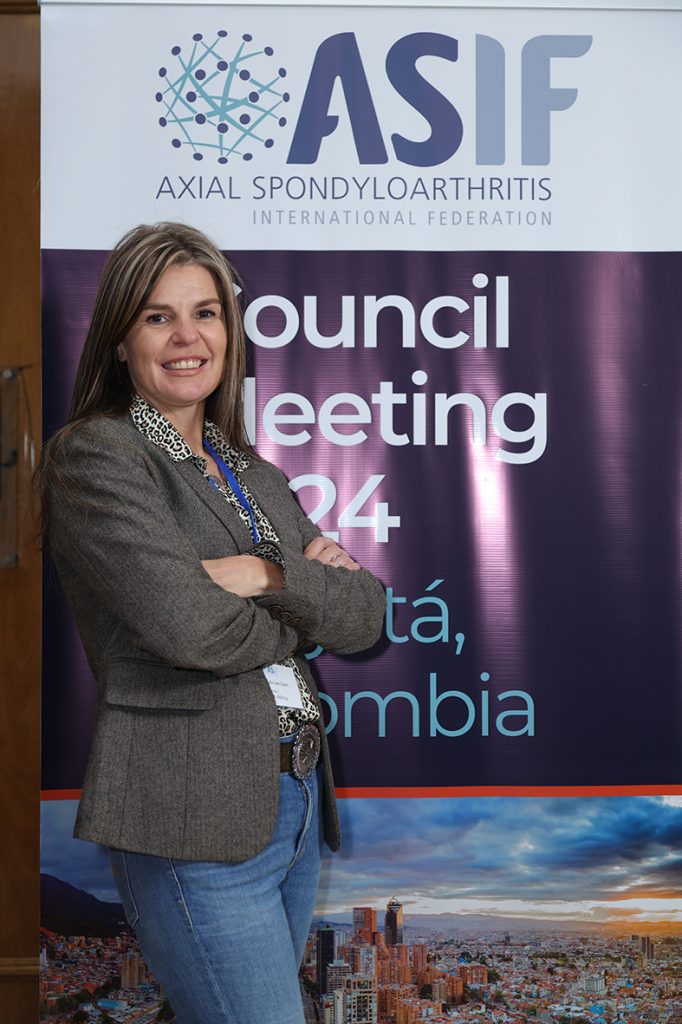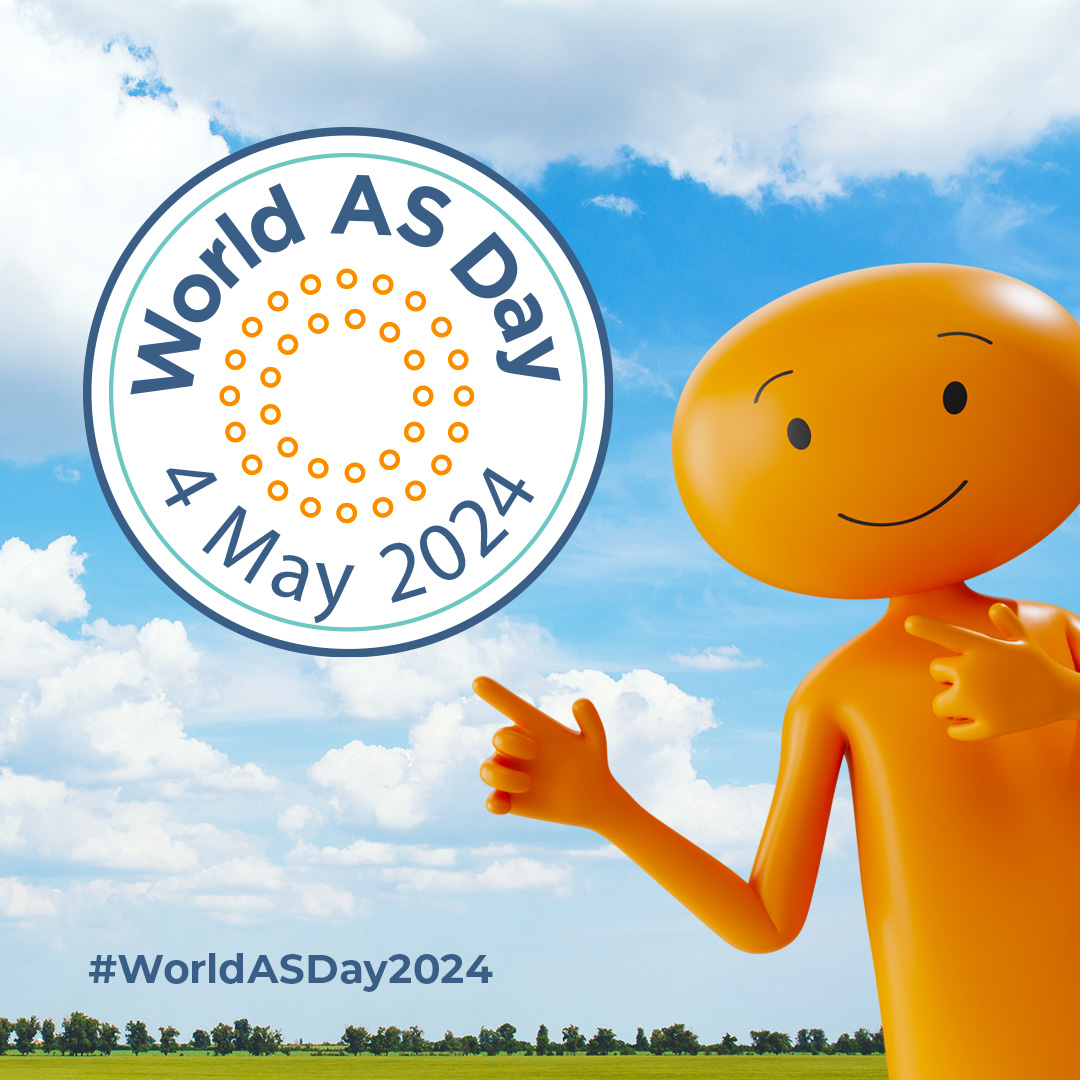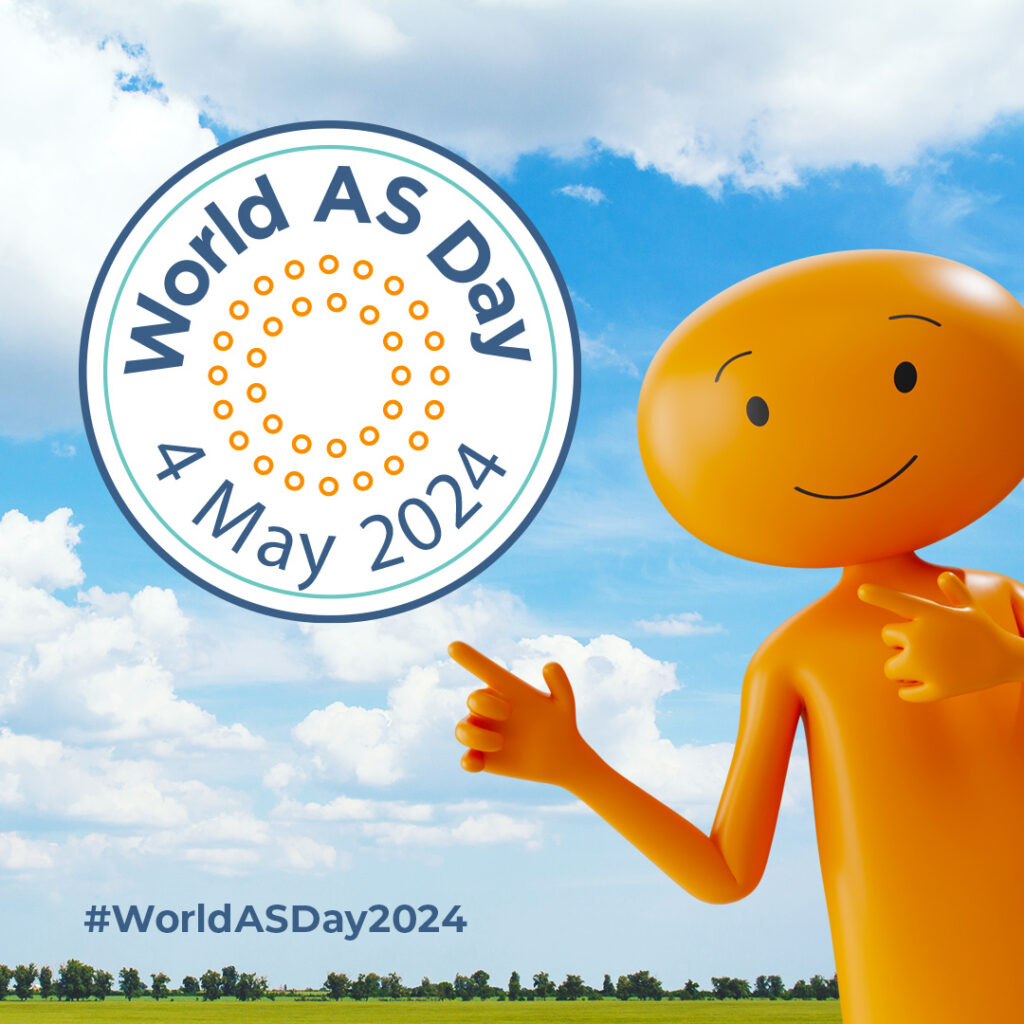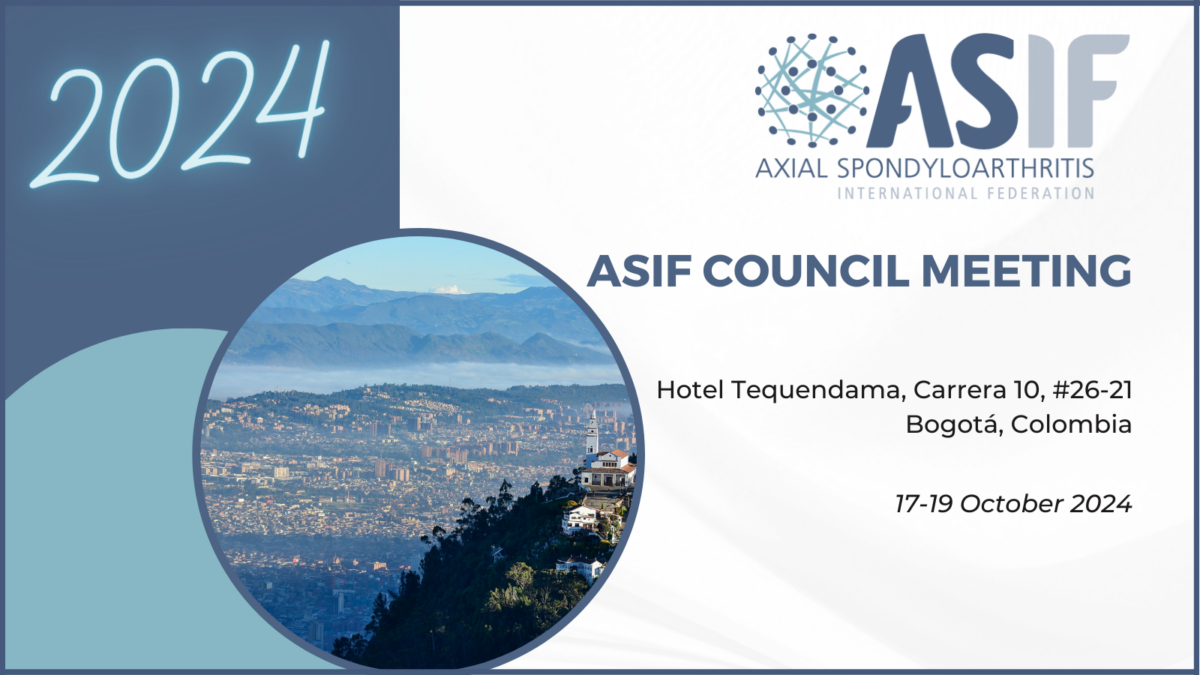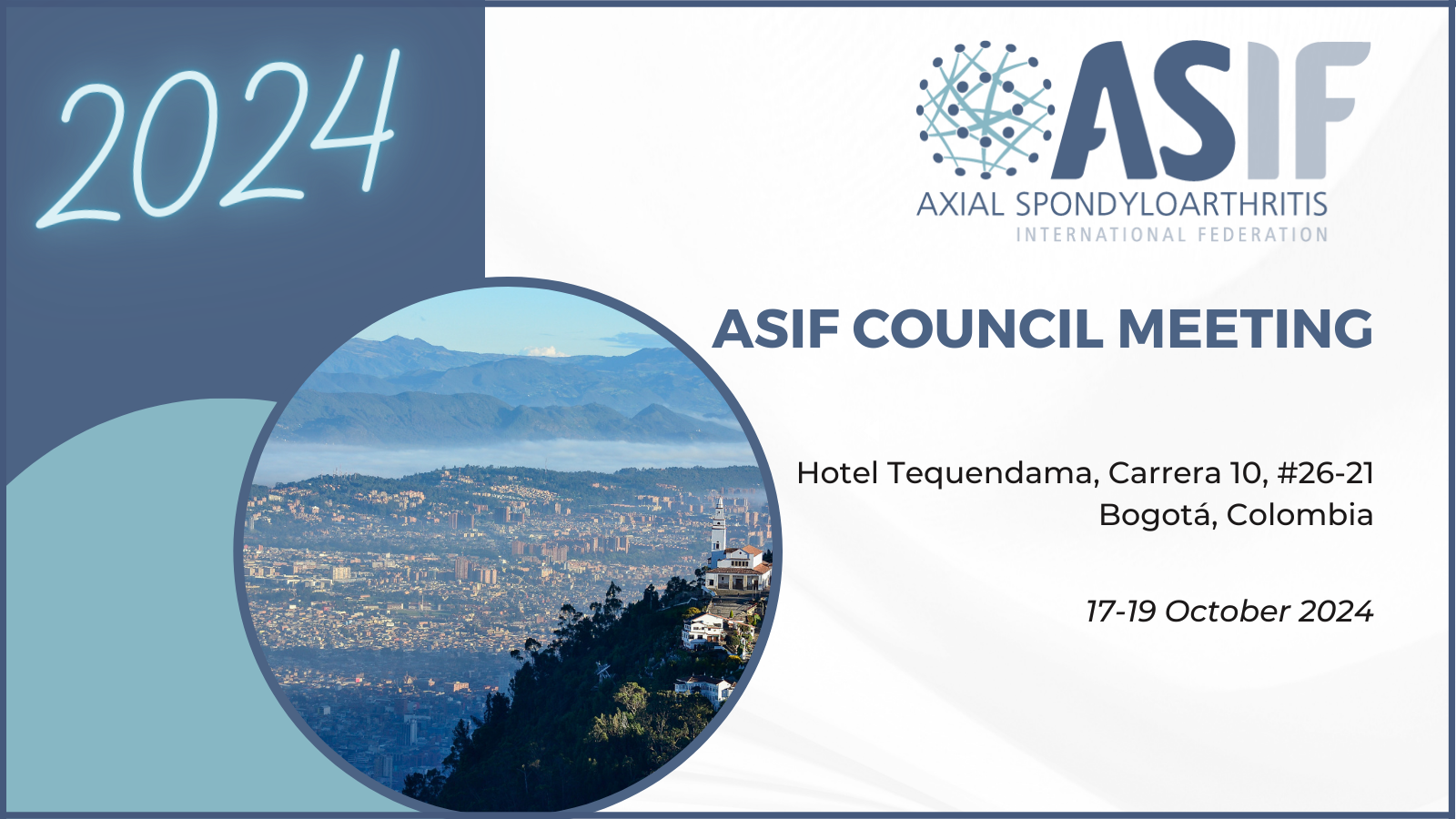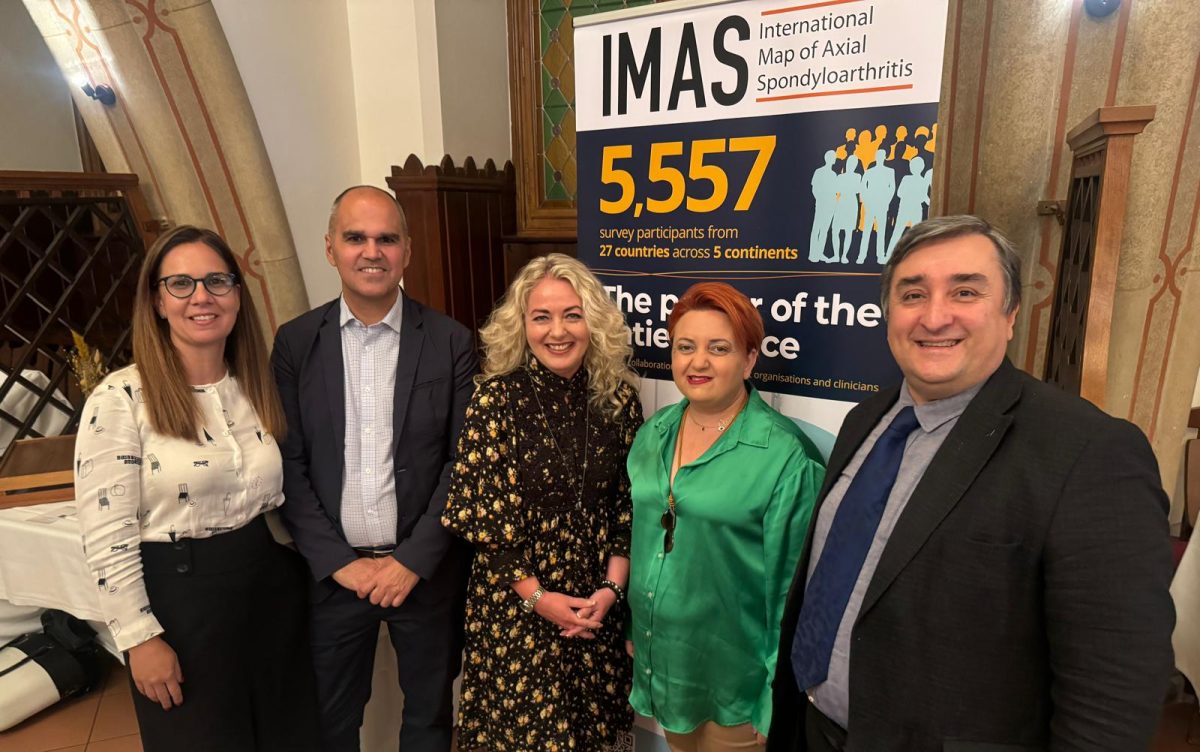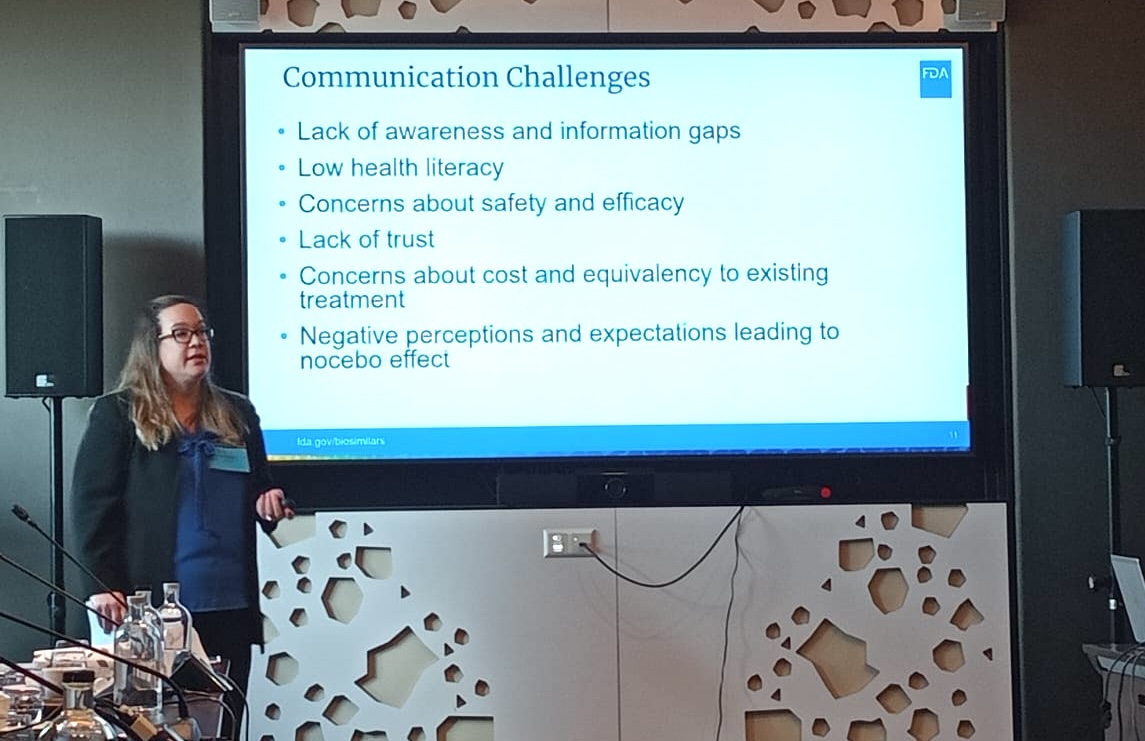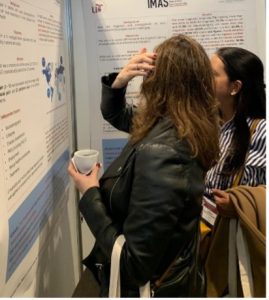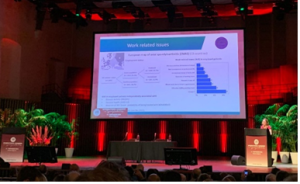Reflecting on EULAR 2024
For ASIF, the most important part of EULAR is meeting so many people who are passionate about improving the lives of people living with axSpA! Thank you to everyone who visited our booth and found out more about our work.
Having the opportunity to talk to rheumatologists and other healthcare professionals face to face is invaluable. We spent much of our time discussing the IMAS Global Report and the real-life impact of axSpA. The results from the report echoed what many clinicians told us they hear every day: in particular that the delay in diagnosis can have a debilitating impact, and that many of their patients experience poor mental health due to their condition.
Hundreds of rheumatologists took away a copy of the IMAS Global Report. We hope the content and calls to action will help them work in partnership with their patients to improve health outcomes. Furthermore, we hope the reports are shared with colleagues and the information is disseminated through their networks.
Three IMAS posters were presented at EULAR, as well as a publication-only abstract. The posters gave an opportunity to learn more about the factors are associated pain intensity and poorer mental health. The third poster looked at the regional differences for patients on their journey to diagnosis and their use of healthcare systems.
Representatives from many of our member organisations attended EULAR. Meeting these dedicated individuals in person is invaluable. EULAR presents an opportunity to bring our members together for informal conversations and networking, which frequently leads to new ideas and opportunities.
EULAR also provides a rare opportunity to meet with representatives from industry face-to-face, exchanging updates and exploring opportunities for future support and collaboration.
As always, the scientific programme, posters and workshops were outstanding. Hearing about the new developments in axSpA research is exciting, and listening to presentations about improving the care and outcomes of people living with the conditions is hugely positive.
We were also excited to have an ASIF poster presented by Jo Lowe, ASIF’s Project Manager, about our Delay to Diagnosis awareness campaign. The project produced three films and full social media toolkits in nine languages to our members to help them spread the word about the signs and symptoms of axSpA.
Over the coming weeks we will share further reviews of key EULAR sessions that will interest our members.
The evening before EULAR opened, we hosted the Spotlight on IMAS event. The event brought together people living with axSpA, representatives from patient organisations, rheumatologists, researchers, and some of our industry partners. The Wiener Rathauskeller in Vienna proved the perfect venue to welcome attendees from Brazil to Norway, South Africa to Canada, India to Ukraine. Read more about the event.
If you would like more information about our work, supporting a patient organisation in your country, using the IMAS data in your country, or anything else please contact us.
